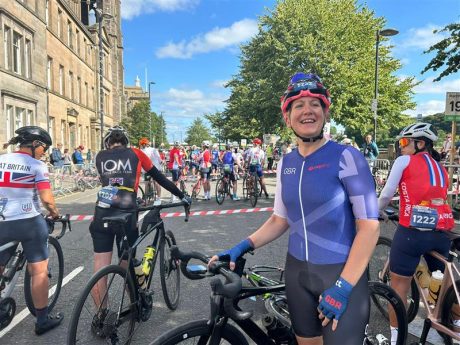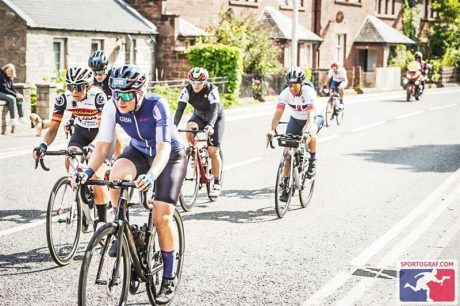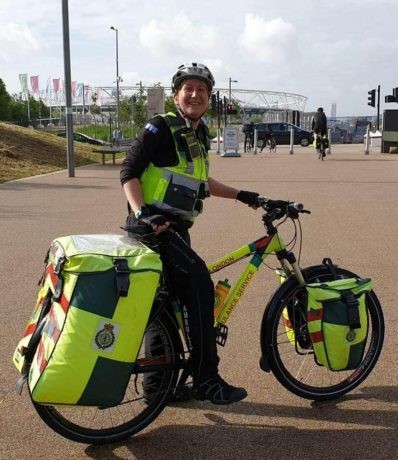Cycle paramedic breaks into top 20 at global championship
A cycle paramedic who hops on her bike to save lives every day has achieved a top 20 finish at one of the world’s most renowned cycling championships.

Carol Reeves, 44, a medic in London Ambulance Service’s pioneering Cycle Response Unit (CRU), ranked 19th in the UCI Gran Fondo World Championships this month – the world’s biggest and most prestigious competition for both professional and amateur cyclists.
It took Carol just five hours and 10 minutes to cycle 100 miles, climbing a gruelling 6,000 ft.
She tackled the challenging roads of Highland Perthshire outpacing 180 of the world’s best women riders.
 Carol said: “Getting to the finish line was a bit like racing to save the life of a patient. You need to have the confidence that you are going to make it.”
Carol said: “Getting to the finish line was a bit like racing to save the life of a patient. You need to have the confidence that you are going to make it.”
Carol, who has been at the Service for 17 years, cycles an average of 30 miles per shift. As a cycle paramedic, she can race past the capital’s heavy traffic to get to her patients in an average of six minutes.
Carol said: “Pedalling fast to get to emergencies on a bike that has lots of medical equipment packed into panniers definitely helped me prepare for the competition.
“It was amazing to achieve such a result. All that was going through my head was: ‘please, don’t come last!’”
Carol, from Dartford, Kent, became a keen cyclist 15 years ago, after a career in the British Army.
In 2006, she started working as a paramedic in East London, before moving to Waterloo to cover an area in Central London by bike.
This year, Carol qualified at the Gran Fondo race in Cambridge and was then invited to represent Team GB in Glasgow.
Only the top 25% of riders from 27 qualifying events held around the world were invited to compete in Scotland.
London Ambulance Service’s Cycle Response Unit is a team of 40 paramedics who ride through the city’s busiest areas to alleviate pressures on ambulances.
Cycle paramedics carry 75 kilograms of equipment, including the same life-saving equipment as an ambulance like a defibrillator and electrocardiogram (ECG) machine.
Over 50 per cent of the patients they treat can be discharged at the scene, freeing up ambulance crews to attend patients who need to be taken to hospital.
You can find out more about London Ambulance Service’s Cycle Response Team here.

Follow us on social media: